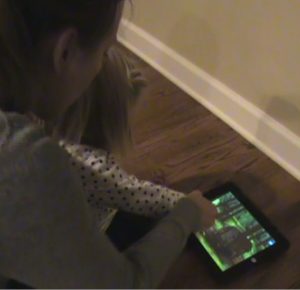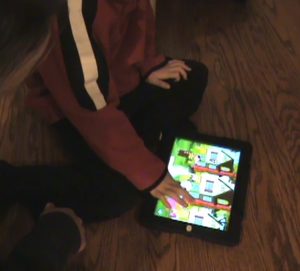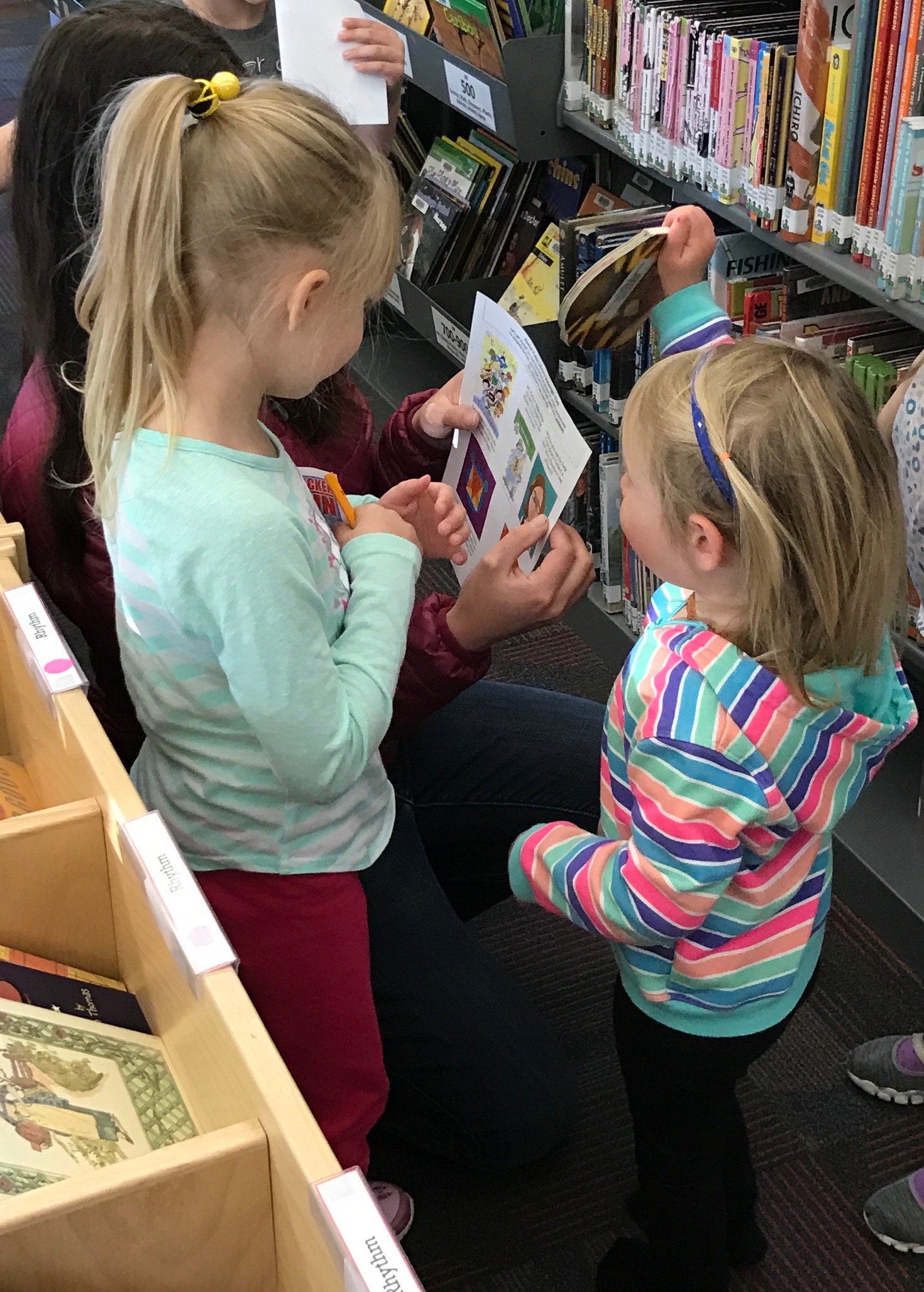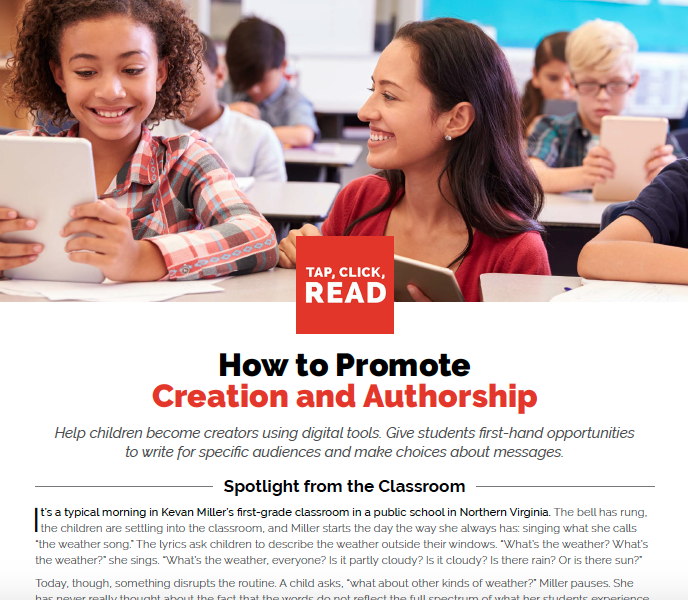This was originally published March 21, 2017 on the TEC Center blog and appears here with permission.
Katie Paciga, a Fred Rogers Center and TEC Center Early Career Research Fellow, and Mary Quest, a doctoral student and instructor at Erikson Institute, recently published a study on e-book reading with young children. The full citation of the research article is included below and is available for download here. Here, they share several research-based tips to consider as you plan for e-reading experiences with toddlers and preschoolers.

1. Sit in close proximity to your child as you co-engage in e-reading experiences.
- The close proximity, and your shared gaze and attention that come with proximity, work to build bonds between caregiver and child.
2. Try placing the tablet on a stable surface when reading e-books with toddlers or preschoolers, rather than on the child’s lap.
- When the device is on the child’s lap, the child may struggle to stabilize the device. This could impact the child’s overall experience with the text.
3. Read e-books multiple times with your child.
- This could allow the texts to become a “favorite book” of your child’s.
- Utilize the menu features during the first e-reading experience to read the book yourself to your child, as opposed to letting the device narrate the text.
4. Remind children that they sometimes need to wait (i.e., inhibit behavior) for the e-book, or application, in order to interact with the interactives/clickables.
- Young children may also require prompting to activate (i.e., activate behavior) the interactives/clickables.

5. For both selecting and sharing an e-book, consider the child’s developmental level and the child as an individual, including their particular interests.
- Adjust the way you respond to better co-regulate the e-book experience. Two-year-olds may not read through an entire board book from cover to cover, so consider brief interactions with smaller portions of e-books to be acceptable e-reading experiences for them.
- Utilize affirmations, questions, and verbal and physical prompts (e.g., pointing) to build on the child’s developmental strengths and interests.
Research Citation
Paciga, K. A., & Quest, M. (2017). It’s Hard to Wait: Effortful control and story understanding in adult-supported e-book reading across the early years. Journal of Literacy and Technology, 18(1), 35-79.
 Dr. Katie Paciga is an Assistant Professor of Education at Columbia College Chicago and is the first ever Early Career Research Fellow of the TEC Center at the Erikson Institute and the Fred Rogers Center for Early Learning and Media at Saint Vincent College (with generous funding from the Grable Foundation). She holds a PhD in Literacy, Language, and Culture (University of Illinois at Chicago, 2011) and is a licensed elementary school educator as well. Her teaching and research interests focus on the social, emotional, cultural, and cognitive bases for language and literacy development, with a focus on the ways in which educational policies, human interaction, individual interests, printed media (i.e., children’s literature) and interactive media (i.e., web- and app-based games and tools) contribute to language and literacy teaching and learning.
Dr. Katie Paciga is an Assistant Professor of Education at Columbia College Chicago and is the first ever Early Career Research Fellow of the TEC Center at the Erikson Institute and the Fred Rogers Center for Early Learning and Media at Saint Vincent College (with generous funding from the Grable Foundation). She holds a PhD in Literacy, Language, and Culture (University of Illinois at Chicago, 2011) and is a licensed elementary school educator as well. Her teaching and research interests focus on the social, emotional, cultural, and cognitive bases for language and literacy development, with a focus on the ways in which educational policies, human interaction, individual interests, printed media (i.e., children’s literature) and interactive media (i.e., web- and app-based games and tools) contribute to language and literacy teaching and learning.
 Mary Quest is a PhD student at Erikson Institute and currently teaches human development courses there. She also works on the Town Square IL family child care website. Mary is a founding member of Cultivating the Early Years, a network for progressive early childhood educators and she has provided professional development and workshops for teachers, parents, professionals and students. Mary taught full time in the early childhood teacher preparation program at Columbia College Chicago. Prior to that, she taught preschool and kindergarten for 12 years. She has also been adjunct faculty at Triton College in River Grove, Illinois; Concordia University Chicago; and Pacific Oaks College.
Mary Quest is a PhD student at Erikson Institute and currently teaches human development courses there. She also works on the Town Square IL family child care website. Mary is a founding member of Cultivating the Early Years, a network for progressive early childhood educators and she has provided professional development and workshops for teachers, parents, professionals and students. Mary taught full time in the early childhood teacher preparation program at Columbia College Chicago. Prior to that, she taught preschool and kindergarten for 12 years. She has also been adjunct faculty at Triton College in River Grove, Illinois; Concordia University Chicago; and Pacific Oaks College.




